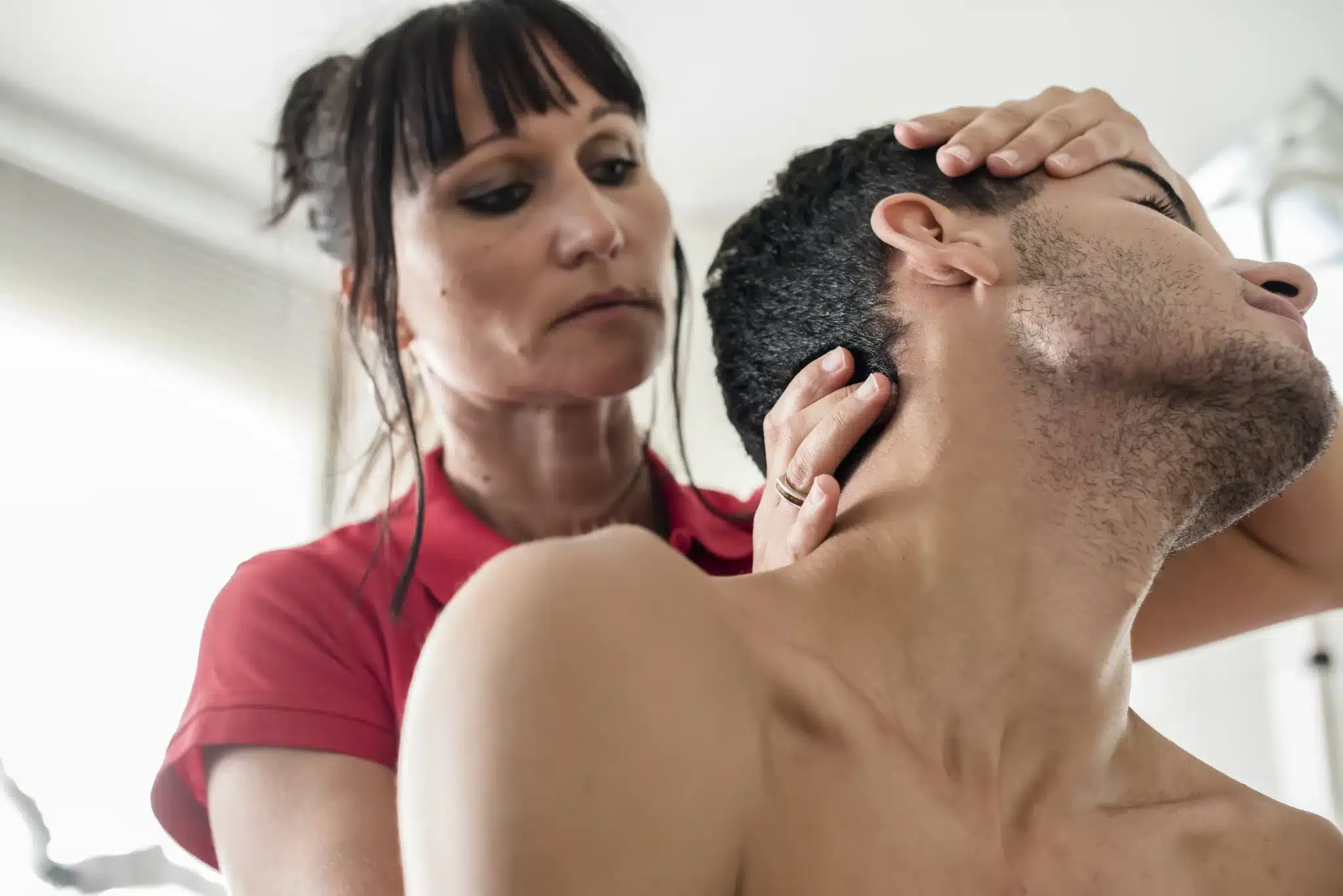Table of Contents
On January 21st, 2020, the Centers for Medicare and Medicaid Services (CMS) announced their decision to cover acupuncture for chronic low back pain. This is defined as localized pain in the lower back that persists for more than three months. The decision was momentous because it marked the first time acupuncture services could be reimbursed by Medicare, for this reason all people with these conditions and who were wondering Does Medicare Cover Acupuncture, can now make use of this service.
Unfortunately, the decision also created a great deal of confusion. While Medicare now covers acupuncture services for lower back pain, there are a number of important conditions that must be met for treatment to be eligible for acupuncture billing. This makes many wonder what factors are considered for Medicare acupuncture coverage.
For example, the treatment must be administered under the “adequate supervision” of a physician, physician assistant, or nurse practitioner. This may sound simple enough, but the language used by the CMS ruling to define who may administer that treatment is deceptively complex.
Does Medicare Cover Acupuncture?
The simple answer? Medicare doesn't cover acupuncture for any condition other than chronic low back pain.
There are also additional acupuncture insurance billing requirements to follow, although the ruling has created the impression that any licensed acupuncturist can bill services to Medicare as long as they administer treatment in the presence of a physician, physician, assistant, or nurse practitioner. However, this is not an accurate interpretation of the CMS decision.
The ruling clearly states that a provider must be an MD/DO, physician assistant, nurse practitioner, clinical nurse specialist, or auxiliary personnel. They must also “possess a master’s or doctoral-level degree in acupuncture or Oriental Medicine from a school accredited by the Accreditation Commission on Acupuncture and Oriental Medicine (ACAOM)” and hold a “current, full, active, and unrestricted license to practice acupuncture” in the state.
Some holistic practices have seized upon the category of “auxiliary personnel” and taken it to mean something akin to an independent contractor. While an independent Licensed Acupuncturist may qualify as auxiliary personnel, the CMS ruling is quite clear on how this category can administer treatment:
“Auxiliary personnel furnishing acupuncture must be under the appropriate level of supervision of a physician, physician assistant, or nurse practitioner/clinical nurse specialist required by regulations…”
The key phrase here is “appropriate level of supervision,” which is typically interpreted under Medicare guidelines to mean that the person providing the service is “incident to” a physician’s professional services or hospital services. Put simply, means that the acupuncturist is administering treatment on behalf of the physician as part of the physician’s practice. All auxiliary personnel must, therefore, be supervised by the authorized Medicare provider.
Following this logic, then, auxiliary personnel cannot directly bill Medicare for any services rendered because they are not the registered Medicare provider. The supervising physician may bill Medicare for acupuncture treatments for lower back pain (with some restrictions), but the acupuncturist cannot do so themselves.
Furthermore, since licensed acupuncturists are not currently included on the list of Medicare provider groups, there is currently no way for them to directly bill Medicare for reimbursement. Hypothetically, if they were added to the list of qualified provider groups, they would be able to bill for eligible services (currently chronic lower back pain).
Unfortunately, an act of Congress would be necessary to expand the list of provider groups. Despite several attempts to add acupuncturists to the list of Medicare providers over the past 40 years (most recently with the Acupuncture for Heroes and Seniors Act, introduced in 2015 and reintroduced in 2017 and 2019), none of them have received a committee hearing in Congress.
Current State of Medicare Acupuncture Coverage
According to Medicare, back pain can be covered if it meets the following conditions:
- It has lasted 12 weeks or longer.
- There is no known cause (not related to cancer that has spread, inflammatory, or infectious disease).
- Pain not associated with surgery or pregnancy.
As of current Medicare acupuncture coverage regulations, no other sources of back pain will be covered. However, it’s not that simple. Since Licensed Acupuncturists are still not included on the list of Medicare provider groups, most acupuncture practices will be unable to deliver Medicare-approved acupuncture until an act of Congress changes the current verbiage to include them.
Additionally, Medicare guidelines state that a Medicare-approved acupuncture treatment must be no more than 45 minutes. Insurance companies may be inclined to decline payments if they receive an insurance claim from a provider for a 60-minute treatment.
While this CMS decision has made progress, it still does not serve the acupuncturing community as effectively as it may appear since the greater majority of Licensed Acupuncturists cannot deliver services covered by Medicare still unless they are working for a physician.
Acupuncture Medicare Fee Schedule
For Medicare-covered acupuncture, guidelines stipulate that up to 12 visits in the first 90 days may be covered for Medicare beneficiaries.
Up to eight additional sessions may be covered for patients who demonstrate improvement, but no more than 20 acupuncture treatments may be administered annually. Treatment must also be discontinued if the patient is not improving or is regressing.
The current rules cover the following acupuncture treatment codes (at the current Medicare national average fee schedule)
- 97810 ($37.89): Acupuncture, one or more needles, without electrical stimulation, initial 15 minutes of personal one-on-one contact with the patient.
- 97811 ($28.87): Each additional 15 minutes of personal one-on-one contact with the patient, with re-insertion of needles.
- 97813 ($42.22): Acupuncture, one or more needles, with electrical stimulation, initial 15 minutes of personal one-on-one contact with the patient.
- 97814 ($34.65): Each additional 15 minutes of personal one-on-one contact with the patient, with re-insertion of needles.
- 20560 ($26.71): Services with needle insertion(s) without injection(s) of 1 or 2 muscle(s).
- 20561 ($39.70): Services with needle insertion(s) without injection(s) of 3 or more muscle(s).
The Future of Medicare Billing for Acupuncture Services
While most acupuncture practitioners are currently ineligible to provide Medicare-covered services for patients, there are movements in place to change the verbiage surrounding acupuncture in the Social Security act to include more of the acupuncturing community.
The American Society of Acupuncturists is currently at work drafting a bill for Congress and gathering support to make a change to the existing guidelines. In early 2021, their goal is to secure bipartisan support for the bill and organize acupuncturist advocacy campaigns to increase awareness of their bill. For more information, check out the plan here.
At Holistic Billing Services, we deal exclusively with holistic healthcare practices like acupuncture, massage therapy, and chiropractic treatment. Our team of experienced billing and coding experts understand the unique needs of holistic practices – such as acupuncturist practices – and can help you take steps to accelerate your revenue cycle management. For any questions about holistic billing, feel free to contact our team today and let us know how we can help your acupuncture practice.
Lates posts
- Maximize Your Reimbursement with CPT Code 97161
- Maximize Reimbursement with the M79.7 Diagnosis Code for Fibromyalgia: A Comprehensive Guide
- Unlock Maximum Reimbursement with the 97163 CPT Code Description: A Guide for Healthcare Providers
- CPT 97164: Optimize Reimbursement for Physical Therapy Re-evaluations and Treatment Adjustments
- Maximize Your Reimbursements: MODIFIER 91 VS 59 Explained for Holistic Healthcare Providers





